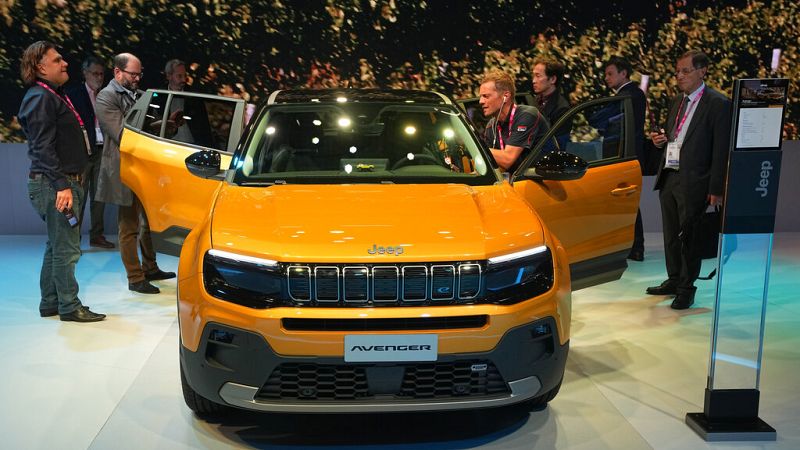Which European country offers the most government subsidies to buy EVs?

The countries offering the most generous government subsidies for purchasing electric vehicles (EVs) in 2025 are Italy (starting its scheme in mid-October), closely followed by Poland and Greece, according to Euronews Business' research.
As EV sales are still limited by high prices and a lack of charging stations in Europe, countries have implemented a wide variety of schemes. These aim to boost zero-emission vehicle sales in an effort to meet the EU’s carbon emissions goals. Targets require that fleets of new passenger cars need to reduce their CO2 emission by 55% by 2030.
While there have been shifts since the European Automobile Manufacturers' Association (ACEA) released its report about this topic in April, using the latest government-released information, we have determined where in Europe individuals can get the highest amount of support to purchase an EV.
Our research doesn't include incentives for businesses, nor does it take into account regional or local subsidies, and considers only schemes that were launched to start by October 2025.
Italy has recently announced the start of its new incentive, which offers around €11,000 for individuals, covering up to 30% of the total purchase price of a new electric car. The amount of the incentive depends on income, and cars with a price tag higher than €42,700 including VAT are exempt from this programme.
EV sales in Italy are particularly low, according to ACEA. BEVs had a market share of 5.2% between January and July in 2025. The EU average was around 15%.
Greece and Poland each offer around €9,000 in subsidies for individuals.
In Greece, this is topped off with a further €2,000 for scrapping an old polluting vehicle and €1,000 if the purchaser is younger than 29 years old. Moreover, the country offers generous tax incentives. BEVs are exempt from registration tax, and the lowest-emitting vehicles are also exempt from circulation tax. Greece had a market share of 5.3% of BEVs between January and July.
Poland also imposes zero registration tax for BEVs, where the market share for these vehicles was 5.4% in the first seven months of the year.
Further countries with very generous government subsidies include Slovenia, where people can get up to €7,200 to help buy a new BEV priced up to €35,000 (including VAT). The incentive is complemented with a minimum registration tax for BEVs. This category provides 9.2% of the country’s market.
Spain offers slightly less direct help with the purchase, between €4,500 and €7,000 for BEVs (€2,500-5,000 for PHEVs), but it is coupled with a series of tax incentives. These include a reduction of personal income tax by 15% of the acquisition cost up to a maximum of €3,000 and 75% reduced road tax in main cities, according to ACEA. Battery electric vehicles accounted for 7.8% of the market between January and July.
The most effective schemes might not be the ones that offer the highest direct price incentives, however.
Nordic countries, including Norway and Denmark, with the highest proportion of battery electric vehicles on their roads (market shares were 94.1% and 64.3% respectively), offer no direct purchase incentives.
BEVs in Norway are exempt from VAT, import duties and registration fees, and they have reduced annual road tax and discounted tolls and ferry costs. In Denmark, zero-emission vehicles pay 40% of the registration tax, with an additional deduction of DKK 165,500 (€22,170). People in the country pay car ownership taxes based on the vehicle’s CO2 emissions.
Some countries, including Austria, have just scrapped their incentives for individuals for BEVs, while others are proposing new incentives, including Sweden. The country is proposing a subsidy amounting to SEK 54,000 (€4,938) over 36 months, exclusively for low-income families in rural areas, for buying EVs. The premium is expected to begin in January 2026.
France has cut its EV subsidy budget, but still offers a sizeable package of incentives. The EU’s second biggest economy is about to add €1,000 for each European-produced EV purchase, as long as it is priced below €47,500.
Finland is considering a new scrappage incentive programme that could provide support of up to €2,500 to those who adopt a low-emission vehicle while scrapping a car over ten years old.
Today

